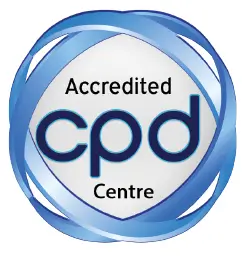Is this for you?
This course is designed as an introduction for anyone looking to gain a basic understanding of relational databases.
Award and Associated Qualifications


This course is designed as an introduction for anyone looking to gain a basic understanding of relational databases.

This course is designed as an introduction for anyone looking to gain a basic understanding of relational databases.
With more and more data coming from a multitude of sources in today’s information-rich economy, there comes an increased demand for secure and well-performing databases with adequate storage. This course will help you develop a firm understanding of what exactly data means and why a database management system is so important for data management.
Stored data can be used to derive all kinds of information. And the proper storage and use of data can contribute to better business decisions. In this course, you’ll learn how to use a relational database management system (RDBMS) to retrieve vital information, and you’ll examine various databases in the marketplace, taking an In-depth look at the features of the most popular ones, such as Oracle and SQL Server.
From there, we’ll move on to structured query language (SQL), and you’ll learn about managing data in an RDBMS, using basic SQL commands to set up and work with databases.
You’ll also explore key responsibilities and tasks performed by the database administrator, including the security, migration, troubleshooting, and configuration of databases. Lastly, you’ll learn about common maintenance functions performed on databases, such as backup and restore, user management, and performance tuning.
"*" indicates required fields
This course will be helpful to anyone looking to develop a foundational understanding of the core concepts relating to working with and managing databases.
There are no pre-requisites for this course.
Wherever possible our training is tailored to your needs. The cost of our training programmes depend on the course(s) you choose and varies according to duration and breadth. Rest assured we have a number of payment options available to ensure the cost of training is affordable and can be worked alongside your other financial commitments. Common ways people fund their training include: –
Requesting funding from your employers needn’t be a daunting task. Many employers support and encourage their employees with their professional development and consider it a worthwhile investment to fund any training required.
What we can help with:
There may be the opportunity to apply for funded grants that can help towards the cost of training. These include the Skills Development Scotland ITAs and the ReAct programme in Wales. All schemes will have different terms and conditions that will need to be met in order to qualify for a grant and these are managed by each individual centre.
We’d recommend you speak to a Course Advisor in your local centre to find out whether they are registered to offer any such schemes and discuss your requirements further.
* Terms and Conditions apply. Speak to a Course Advisor for full information on the options available to you.
This course is ideal if you’re seeking to enhance an existing IT skillset or if you have aspirations of working in the field of data analysis.